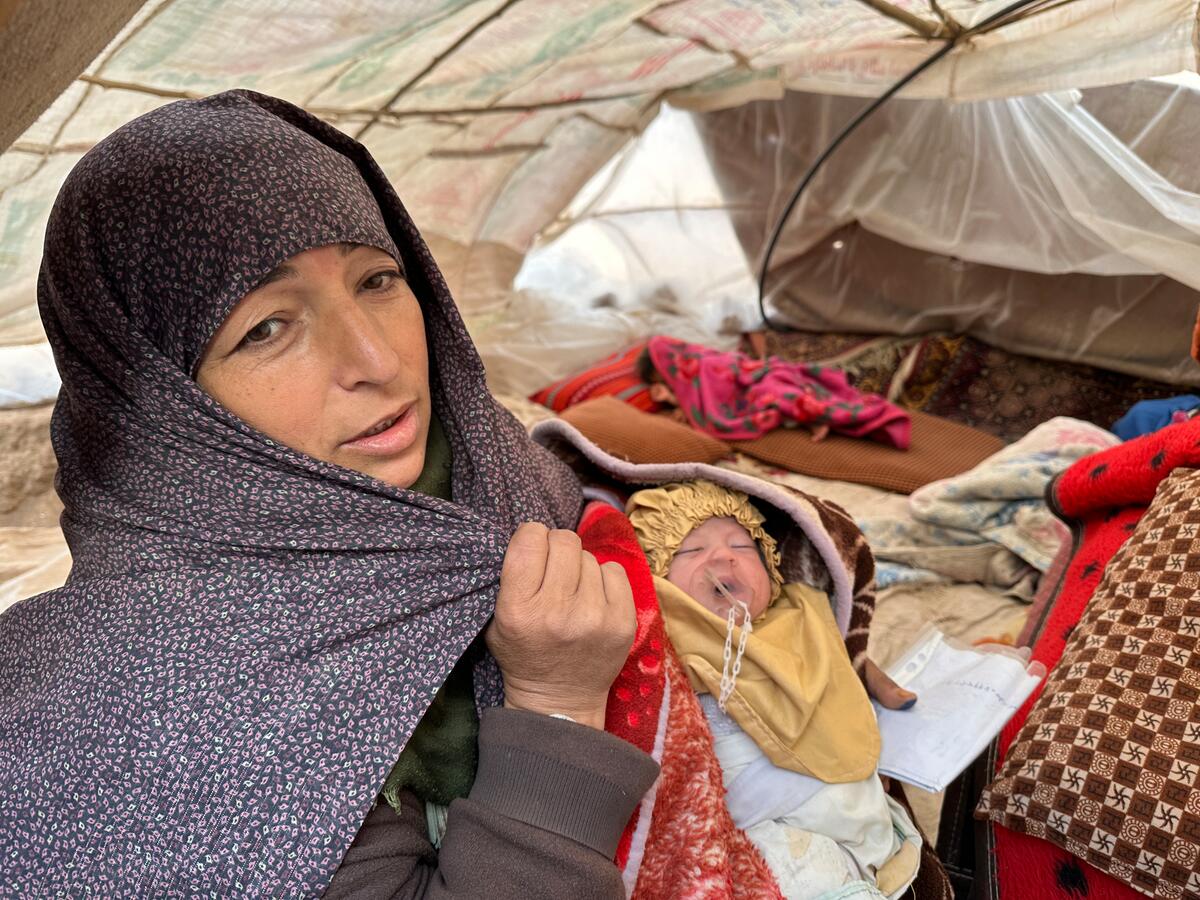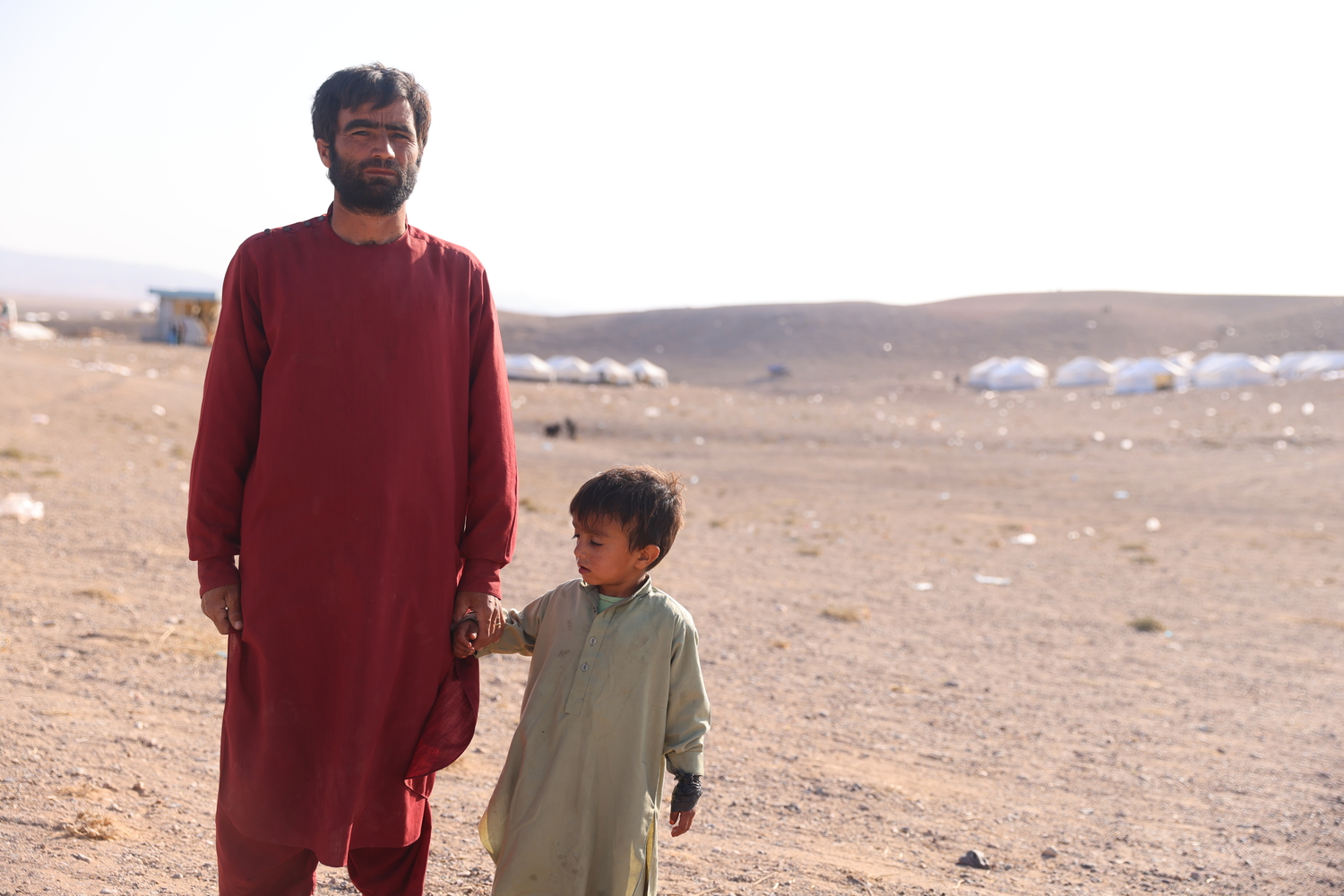Afghanistan Humanitarian Update No. 17
Afghanistan Humanitarian Update No. 17
At a Glance:
- UNHCR expresses frustration over Afghan aid obstacles
- Preparations in Pakistan's border areas seriously hampered
- Iran assures UNHCR there will be no more deportations of Afghans
- Relief flights scheduled to Pakistan and Iran
UNHCR Expresses Frustration Over Aid Obstacles
UNHCR Thursday expressed growing concern and frustration over numerous obstacles preventing it from making urgent preparations for a possible influx of refugees in countries bordering Afghanistan.
"We are in a real race against time - and right now we are losing," High Commissioner Ruud Lubbers said in a press release. "Unfortunately, we are not receiving the support - in the region or internationally - that we need."
Although no major movements have been reported, borders in neighbouring countries remain closed. In Pakistan, red tape and security concerns prevent UNHCR field teams from getting access to border areas to monitor possible population movements or from offering immediate assistance to any new arrivals.
Compounding the problems is the insistence of the Pakistan government that any new camps be built in dry, remote and insecure tribal areas along the Afghan border. While recognizing the enormous burden that Pakistan - which already hosts some 2 million Afghans - has carried for years, UNHCR continues to press for more suitable sites further inland. It also urges neighbouring states to open their borders to those in need of protection and assistance
Internationally, UNHCR again urges donor governments to quickly provide the $50 million required for the first phase of the agency's contingency plans to help up to 400,000 people. Although some $29 million has so far been pledged, less than $23 million has actually been received by UNHCR to date.
"I appeal to donors to make their contributions now, before it is too late," High Commissioner Lubbers said. He noted that any resources pre-positioned by UNHCR could be transferred inside Afghanistan if there is no major influx into neighbouring countries.
Preparations in Pakistan Border Areas Hampered
Preparations for a potential mass influx of Afghans in the border areas of Pakistan remain virtually stalled due to the fragile security situation and limited freedom of movement for international staff.
In Quetta, where UNHCR's office was attacked and damaged on Monday, UNHCR has been unable to fully resume its work, despite Quetta authorities' expressions of regret and assurances of greater security. Thursday was the first day UNHCR staff could go back to their offices. But staff have been restricted from visiting field locations or monitoring border crossings because of security concerns. The situation is very worrisome because aid agencies are losing precious time in preparing to receive large numbers of Afghans who may try to flee Afghanistan.
Initially, more than 100 possible reception sites had been identified by the Pakistan authorities in the border areas - about 100 in North-West Frontier Province and six in Balochistan. UNHCR had evaluated most of these sites and found 11 of the North-West Frontier Province sites and three of the Balochistan sites to be suitable - if needed improvements could be made.
In North-West Frontier Province (NWFP), at least 15 sites are needed to accommodate an initial 150,000 people. But following some disappointing results during recent site surveys, land ownership disputes with local tribes, and the decision by the authorities to withdraw six approved sites, UNHCR will need to retrace numerous steps made over recent weeks.
Of the 11 previously allocated sites, six were later withdrawn by NWFP authorities without explanation and even though work had already begun. Pakistan authorities have instead offered four replacement sites in Bajaur Agency. Aid workers will now have to survey the four suggested locations to ensure their suitability, forcing further delays in the operation to prepare the region for a possible influx.
Based on their proximity to likely border crossing points, UNHCR staff operating from Peshawar are working to identify a total of 15 locations - seven in Khyber Agency, three in Kurram Agency, two each in Bajaur and North Waziristan Agencies and one in South Waziristan.
Readying the 15 initial sites for a possible influx presents huge challenges. These include the rugged nature of the terrain, the lack of sufficient water and the recent ransacking by local tribesmen of four non-governmental organization offices located in the tribal zones that caused relief agencies to restrict their movements in the frontier region near Peshawar.
On Wednesday, one local NGO began clearing land at the sole identified site in Khyber Agency near the Shalman border crossing. But similar work on the rest of the sites across the remote border region cannot proceed without a stable security environment in the tribal areas where the government wants the temporary camps established.
In Balochistan, work on the three suitable sites identified so far is also hampered. Improvements had begun on the water systems in two of sites, but this has been on hold since Monday. Further work is needed to plan and demarcate the sites, improve access roads, build latrines and reception areas and increase the water supply and quality in all the sites. But this crucial work is impossible unless UNHCR and other relief agencies can operate freely and safely in the border areas.
Iran
The Iranian government has assured UNHCR that there will be no more deportations of Afghans. The assurances came after three busloads of Afghans were taken to the border and sent back to Afghanistan on Tuesday. The deportations were the first since the air strikes on Afghanistan began. UNHCR has asked all host countries both in the region and around the world not to deport Afghans.
There are no reports of large-scale movements towards the Iranian border. The border remains officially closed, although some Afghans have managed to cross through unofficial crossing points.
Relief Flights / Movement of Supplies
A relief flight carrying 10,000 plastic sheets and registration materials to Peshawar, Pakistan, is scheduled to leave today from Copenhagen. The flight is the first in a series of flights to the region planned over the coming days. Another flight is scheduled to leave on Friday from Oslo, Norway, to Iran to bring in 16 Rubbhalls - large tent structures that can be used as transit shelter, storage spaces, or shelter for operational activities. A subsequent flight will bring 25 Rubbhalls to Pakistan.
A flight provided by the United Kingdom's Department for International Development arrived today in Islamabad with tents, and telecommunications and computer equipment.
A shipment of 4,000 tents was dispatched Thursday to Peshawar from Lahore, Pakistan.








